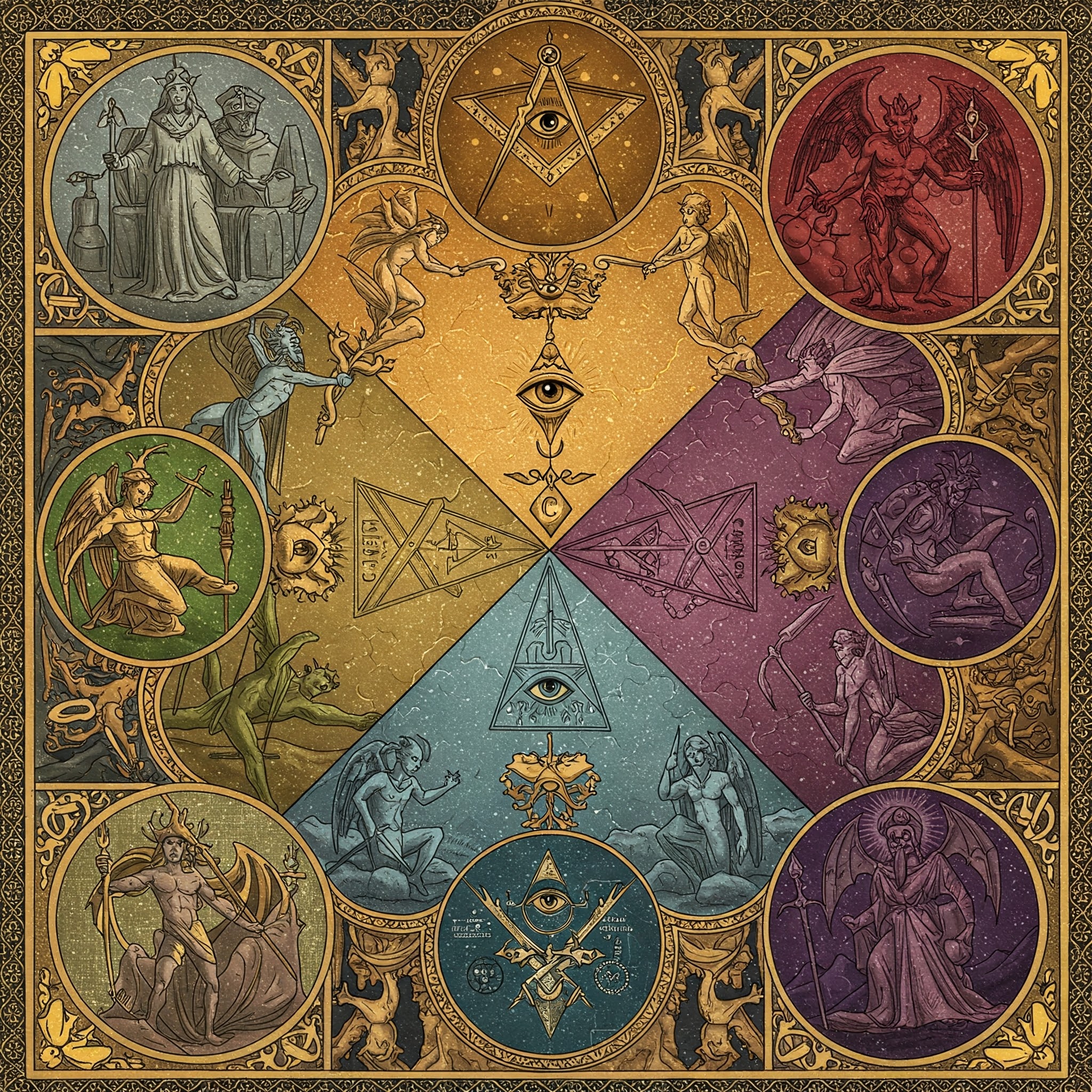By: W.: John Barling – Secretary of Hyde Park Lodge 370
It is often said that the journey of a Mason is one of self-improvement, discipline, and moral fortitude. As we labor in the quarries of virtue, we must remain vigilant against the opposing forces that threaten our moral progress. This evening, I invite you to reflect on two enduring frameworks of moral philosophy—the Seven Deadly Sins and the Seven Cardinal Virtues—which continue to hold profound relevance for us as Masons.
The Seven Deadly Sins, first articulated by early Christian theologians and codified by Pope Gregory I in the sixth century, represent the moral pitfalls that can lead the soul astray: Pride, Envy, Wrath, Sloth, Greed, Gluttony, and Lust. Each sin is an impediment to enlightenment and harmony, corrupting both heart and mind, much like a rough and unhewn stone in the temple of our inner selves.
These ideas were shaped over time, beginning with the Desert Fathers such as Evagrius Ponticus, who originally listed eight evil thoughts. Pope Gregory refined the list into the seven familiar vices, which were later immortalized by Dante Alighieri in his Divine Comedy, where they form the terraces of Mount Purgatory. Just as Dante’s soul must ascend through layers of purification, so too must we—as speculative Masons—progress through stages of moral refinement, striving always toward the Light.
But where there is darkness, there is also light. The Seven Cardinal Virtues stand in direct opposition to these vices, offering a path to righteousness and moral clarity. The Four Cardinal Virtues—Prudence, Justice, Fortitude, and Temperance—are drawn from ancient philosophy, especially the works of Plato and Aristotle. They form the philosophical foundation of Masonic teaching and are emphasized in the Entered Apprentice degree as the cornerstones of a just and balanced life.
The remaining Three Theological Virtues—Faith, Hope, and Charity—are rooted in Christian tradition and point us toward the Divine. These virtues form the rungs of the theological ladder seen in Jacob’s vision: a mystical ascent from earth to heaven, symbolizing our spiritual journey toward union with the Great Architect of the Universe.
Each Deadly Sin has a corresponding virtue that acts as its antidote—just as our working tools help us correct the flaws in our moral character:
- Pride is humbled by Humility, teaching us to subdue our passions and recognize our place within the Grand Design.
- Envy is dispelled by Kindness, reminding us that true Brotherhood thrives on mutual uplift rather than rivalry.
- Wrath is tempered by Patience, guiding us to act with measured reason rather than impulsive emotion.
- Sloth is overcome by Diligence, inspiring us to fulfill our duties with persistence and purpose.
- Greed is counterbalanced by Charity, aligning with our Masonic obligation of relief.
- Gluttony is restrained by Temperance, encouraging moderation in all things.
- Lust is purified by Chastity, promoting self-control and reverence for sacred relationships.
This struggle between vice and virtue is not unique to Masonry—it is a universal human experience. From classical philosophy to Christian mysticism, cultures across history have recognized this inner battle. While Masonry imposes no theological creed, it does embrace these eternal truths, encouraging us to work continually toward our own moral elevation.
Our rituals reflect this inner journey. The Entered Apprentice begins in darkness, symbolizing ignorance and moral blindness. Through instruction, reflection, and the discipline of our Craft, the initiate begins to shape the rough ashlar of his character into a more perfect stone. This allegory powerfully illustrates the choice between vice and virtue, ignorance and enlightenment, chaos and order.
Moreover, the virtues we cultivate do more than improve us as individuals—they strengthen the Brotherhood and illuminate the world around us. A Mason who embodies virtue exemplifies wisdom, leadership, and benevolence. One who succumbs to vice risks not only his own spiritual decline but also the weakening of the Fraternity’s moral foundation. Just as a single weak stone can compromise an entire structure, unchecked vice can erode the integrity of our collective edifice.
Thus, the Cardinal Virtues offer a blueprint for Masonic conduct:
- Prudence helps us act with foresight and discretion.
- Justice compels us to treat all men fairly.
- Fortitude enables us to uphold truth even in adversity.
- Temperance ensures that we remain within due bounds.
- Faith sustains us through uncertainty,
- Hope reminds us that our labors are not in vain, and
- Charity inspires us to serve and uplift others.
In embracing these virtues and resisting the vices, we not only polish the ashlar of our individual character but also contribute to the grandeur of the Masonic temple we are building together—a temple not made with hands, eternal in the heavens.
Let us then continue this sacred work, ever mindful of our moral tools, and strive always to be better men, better Masons, and faithful servants of the Divine Will.
